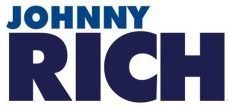A funny thing happened recently. Sam Gyimah, the UK Universities minister tweeted a picture of himself on the train “adding the finishing touches” to a speech he was giving to university leaders later that day. A Twitter user joked that he might want help: “Can I pay someone to write my essay for me?”
Mr Gyimah’s timeline was immediately flooded with responses – mostly from Twitter bots – offering to help with his assignment in return for a fee, guaranteeing a top grade and that the ‘essay’ would be free from plagiarism.
The original tweet was a witty reference to research published earlier in the week which found that as many as one in seven students worldwide has bought an essay or paid someone to do their assignments for them – ‘contract cheating’ as it’s called.
This figure has been increasing since the 1970s and the internet has made the process simpler, more anonymous and easier to promote.
‘Essay mills’ – the shady organisations offering contract cheating services – have gone high tech to promote themselves, vying to answer the desperate calls for help by students on social media.
It’s easy to pin the blame on the students who cheat. Their schools and universities certainly will blame them when they’re caught, and the academics I’ve spoken to tell me it’s pretty insulting to think that most cheating isn’t easy to spot. Most universities have a zero-tolerance approach to cheating – and so they should.
But, although we should want to stop the use of essay mills – as with drug addicts craving a fix – we need to recognise that students are the victims, not the crooks. Most contract cheating arises out of desperation: an unmeetable deadline, a sense of inadequacy, failure to understand their subject, competing pressures… not least the huge pressure to succeed in the face of rising student debts. Such anxiety should be met with sympathy and better pastoral and academic care. Desperation should not be ignored until the only course left is punishment.
Like drug pushers, loan sharks and penis enlargement ‘cures’, the essay mills prey on this desperation and it is they, not students, who should be recognised as the criminals profiteering from fraud.
Yet, they are not. Shockingly, essay mills are not illegal in the UK. Sure, they’re on shaky ground if they incite their customers to pretend the work is their own, but most try to avoid that by calling them ‘sample essays’ or ‘study aids’. Any idiot can see through this lie, because the mills also go to great lengths to assure customers that essays will be unique and will get through software like Turnitin that spots plagiarism. Many even offer the option of an essay that won’t be too good. Why offer such guarantees unless they know students intend to submit the work as their own?
It’s also worth asking what such guarantees are worth. Even if the essay mill tries to offer a good service, they can’t be sure what they’re selling. Most don’t care though. After all, if the product isn’t what you were told, what are you going to do about it? You can’t sue. You can’t even tweet about it. Worse still, you open yourself to blackmail by the essay mill.
Even if at first the cheating seems to go unspotted, it devalues the student’s qualification because they won’t genuinely have acquired the knowledge and skills that their degree certificates are supposed to represent. That in turn will damage the reputation of all students’ qualifications. For the sake of higher education, for academic integrity and for all students, this must change.
That’s why a campaign is quickly gaining support to bring about that change. An official petition to ban essay mills already has thousands of signatures and many prominent supporters. It only needs a few thousand more before the Government is required to respond.
In an international, internet age, no legal ban can completely scour the scourge of essay mills, but it can turn them from opportunists into outlaws. If the practice and promotion of essay mills were illegal, it would push search engines and social media companies to forbid their advertising and delete their accounts. It would allow the seizure of their profits and the prosecution of the individuals concerned. Most of all, it would send a message to students neither to buy essays from the mills nor to write for them, however desperate they find themselves.
A ban will only be successful if universities and academics also bear their responsibility to offer students a better alternative. In the face of desperation a student should feel they can turn to their tutor or student welfare team for support – in terms of tuition, time or even finance – rather than being driven to cheat or break the law.
Any law on essay mills would have to be carefully worded, but that’s true of any new legislation and in an increasing number of other countries – Ireland, Australia, the US and New Zealand – governments are finding both the guts and the right words to stop this travesty. The UK should follow suit.
A footnote: in the end, Sam Gyimah’s speech made two references to essay mills. Who knows? Maybe, by trying to market their dodgy trade, those bots played a part in ensuring the Government starts to recognise this growing problem. Signing the petition now will help them do something about it.
